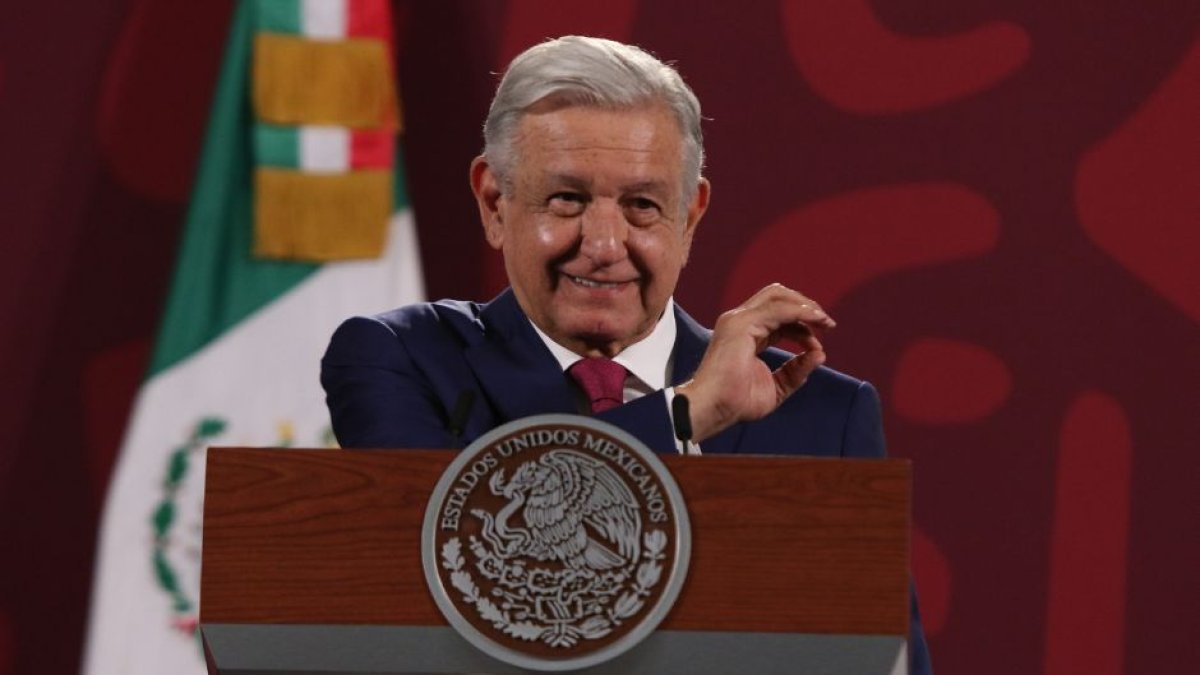Mexico: Plan B, AMLO's reform that allows him to "appropriate the electoral system"
López Obrador wants to take away the powers of INE, the independent supervisory body of elections. The opposition points out that its implementation marks "the road to authoritarianism."

El Plan B, la reforma de AMLO que le permite ""apropiarse"" del sistema electoral.
Mexico explodes against Andrés Manuel López Obrador (AMLO). More than 500,000 people gathered in Mexico City's Zócalo to protest against the president's electoral reform which, among other things, annuls the powers of the National Electoral Institute (INE), a body which until now had been the independent supervisor of elections.
AMLO's initiative -called "Plan B"- is known mainly for seeking to reduce the size, number of workers, budget and autonomy of INE. In addition, it intends to close several of its local offices.
The president accuses the institute of being "politicized" and of being "the most expensive election organization apparatus in the world," in addition to "cheating" and allowing "the falsification of electoral records, the theft of electoral packages and the purchase of votes".
According to the opposition, the reform is an attack on democracy and casts doubt on the transparency of the next presidential elections in 2024.
Opposition appeals to the Supreme Court of Justice
The Senate, which is made up of a majority of López Obrador's party, approved the reform on February 22 (72 votes in favor and 50 against). Only the President's signature is needed for it to become effective.
However, the opposition parties appealed the measure before the courts and together with tens of thousands of demonstrators asked the Supreme Court of Justice (SCJN) to declare it unconstitutional. Mexico's highest court will have the final word on whether or not the rule goes into effect.
AMLO's Plan B goes far beyond INE restructuring
López Obrador's Plan B goes far beyond a simple restructuring of INE. Among its clauses is the modification of The Organic Law of the Judiciary; the General Law of Electoral Institutions and Procedures; and the General Law of Political Parties. Major changes include:
- Guarantee the vote to "vulnerable populations", people in pretrial detention, citizens with disabilities (in a state of extreme weakness), among others.
- Ensure compliance with the principle of " gender parity " in elections of collegiate and chartered groups.
- It imposes modifications to the election calendar and in matters of "electoral justice".
-It eliminates the administrative branch of the National Electoral Professional Service and the General Executive Board, an area that determined the management of INE's resources.
- "Limits are established to the arbitrary actions of both INE and the Electoral Tribunal of the Judiciary of the Federation (TEPJF) with respect to interpretations outside the law that have limited freedom of expression, political-electoral rights, the self-determination of political parties, among others."
AMLO's initial reform proposal - which the opposition stopped in Congress - was much more radical, as it required an amendment to the Constitution. The only part of Plan B that was voted against -compared to the whole of the old proposal- was the"eternal life clause" that would have allowed the transfer of votes between parties of the same coalition.
The importance of INE and AMLO's resentment
INE was founded in 2014, under an electoral reform promoted by former President Enrique Peña Nieto. Until then, the supervision of elections depended on the Federal Electoral Institute(IFE), founded in 1990 after the 1988 presidential elections, in which accusations of electoral fraud arose due to an alleged system failure.
The IFE was constantly accused of obeying the directives of Mexico's top leaders. Therefore, with its entry on the scene almost 10 years ago, the INE promoted honest voting without possible interference and impositions directed from high-ranking executives. Currently, it is "the institution in charge of organizing and guaranteeing the correct development of elections at the national level and assisting in the organization and execution of local elections".
López Obrador was a candidate in the 2006 and 2012 elections in Mexico. In both elections he lost and denounced alleged fraud. Therefore, when he came to the Government in 2018, it was among his priorities to approve an electoral reform, with more political interests at stake.
AMLO wants to "appropriate the electoral system"
The governing party welcomes the reform, which, according to them, puts an end to "privileges, waste and state fraud".
For its part, the opposition fears that Plan B will put an end to INE's independence and give advantages to the current government in the upcoming elections. Some officials claim that the measure is "the road to authoritarianism". Opposition Senator Lilly Téllez denounced:
Ramón Cossío, former Supreme Court Justice, also accused AMLO of wanting to "appropriate the electoral system". However, despite the criticism, the President assures that his initiative will strengthen democracy and reduce the influence of economic interests in politics.























